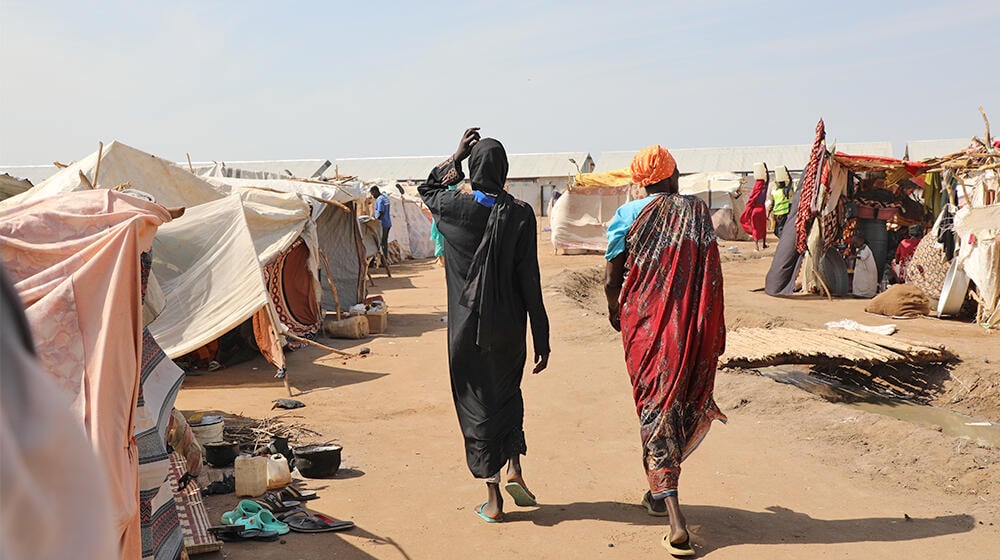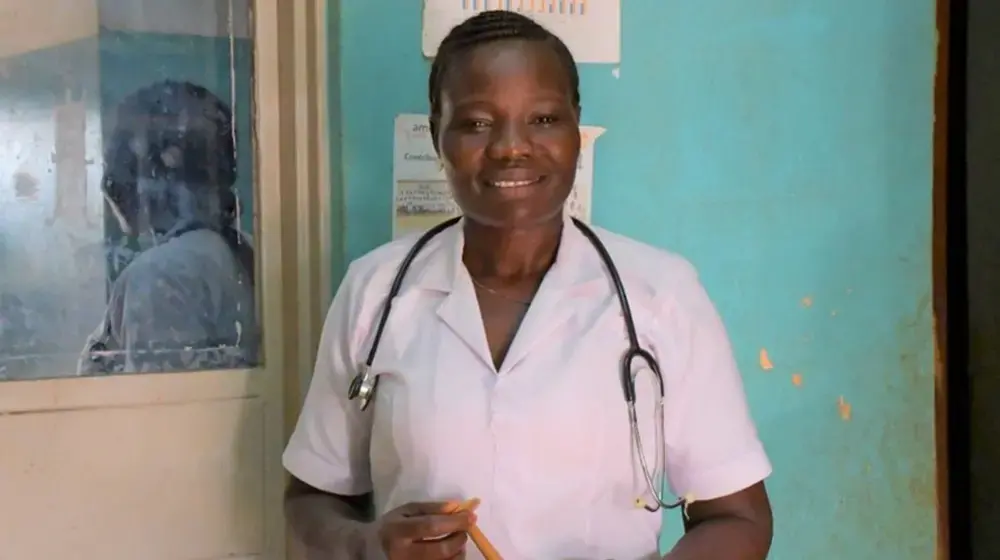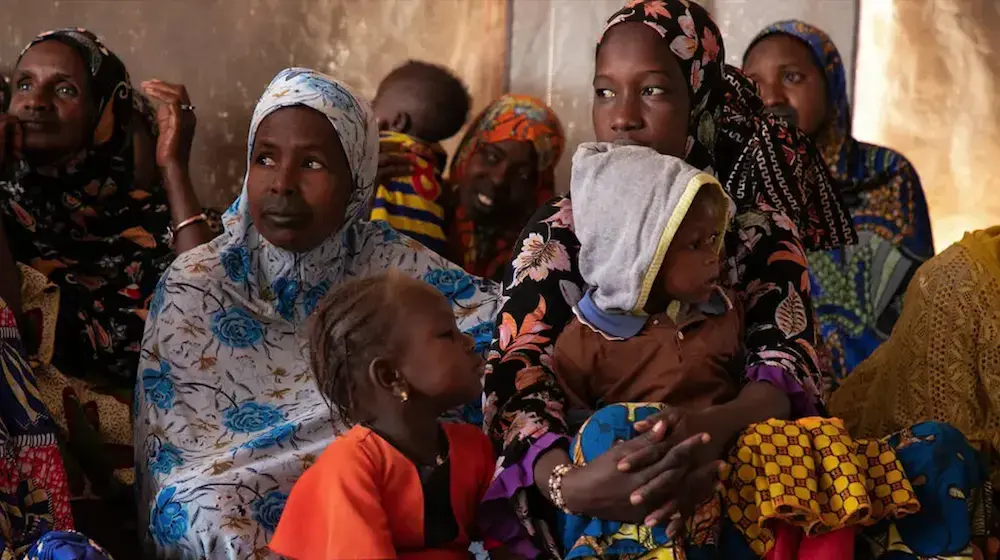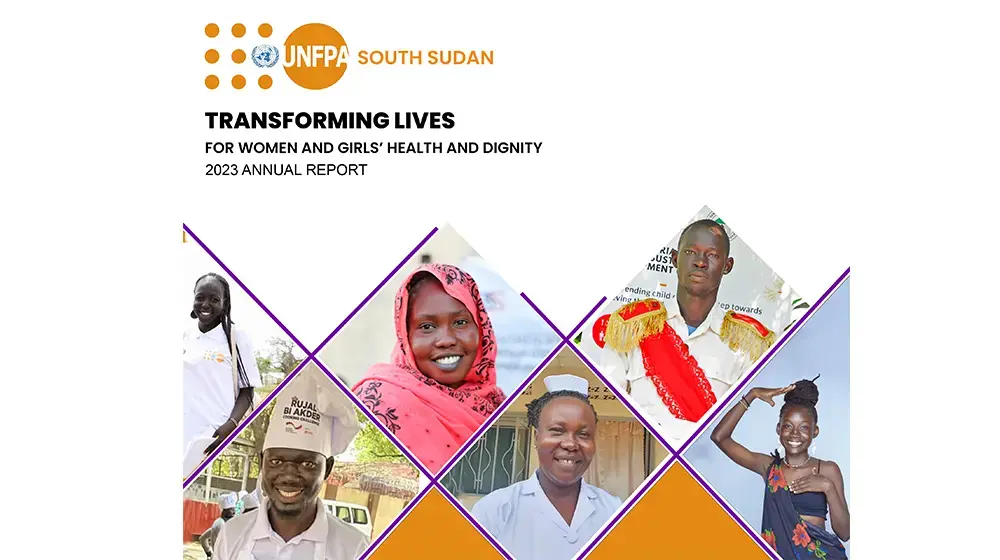In South Sudan, women and girls face a relentless cascade of challenges such as devastating floods, acute food insecurity, scorching heat waves, recurring internal conflicts, outbreak of infectious diseases, and widespread displacements – all fueling a grim reality of sexual violence, and marking the bodies of women and girls with unspeakable trauma.
In these layers of crisis, the critical need for sexual and reproductive health services grows more urgent as the country's health infrastructure struggles, leaving many facilities barely functional and unable to meet essential sexual and reproductive health needs.
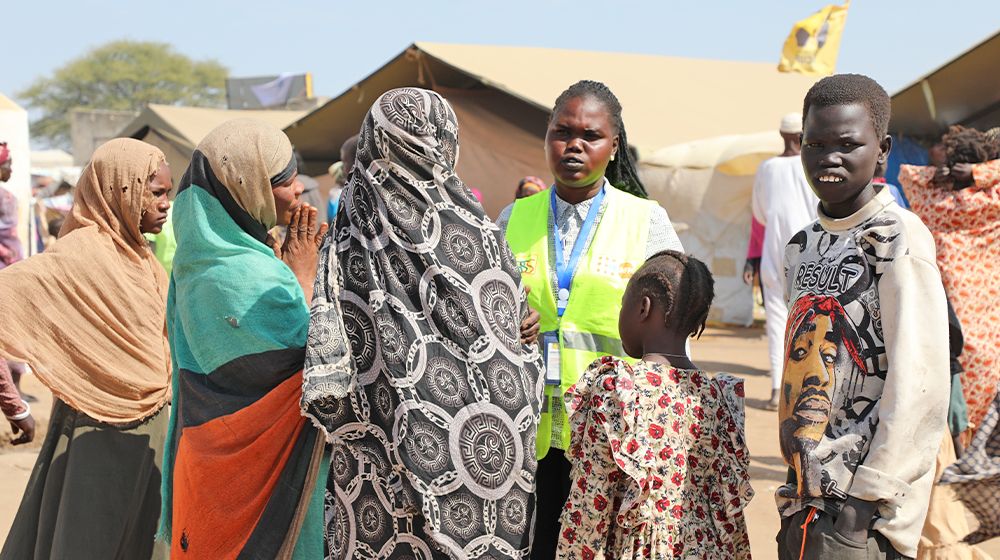
A case work from Hope Restoration, a UNFPA implementing partner condsucts GBV awareness to the Sudanese refugees at the Renk Transit Center
UNFPA, in collaboration with its partners, is actively working to mitigate the suffering by providing essential reproductive health services to displaced women and girls and implementing measures to prevent and respond to gender-based violence at ports of arrival. These zones include Renk, in Transit centers like Malakal, and other destination areas such as Bentiu, Rotriak, Wau, Juba, Bor, Mayom, and Pibor.
In addition to arrivals from Sudan, these locations host persons who have been internally displaced and returnees from neighboring countries.
Support from UNFPA facilitated through partners and referral hospitals, has been crucial in ensuring that women and girls have access to high-quality sexual and reproductive health services. Moreover, UNFPA support to the Women and Girls Friendly Space (WGFS) has been instrumental in restoring hope and rebuilding lives for those affected.
In that space, women and girls find a sanctuary where they are safe—physically and emotionally—and can recover from trauma. This nurturing environment protects them from violence and abuse while providing access to vital information, education, and opportunities for economic empowerment.
The space also serves as a crucial entry point for identifying potential cases of gender-based violence and facilitating referrals to comprehensive one-stop centers. These centers offer holistic support including medical, legal, and psychosocial services under one roof, ensuring that survivors can access the care they desperately need in transforming lives and advocating for a world where survivors are met with the care, dignity, and respect they deserve.
UNFPA has also been distributing dignity kits to vulnerable women and girls as well as survivors of gender-based violence. Furthermore, UNFPA supports survivors of gender-based violence with cash through cash for protection mechanisms. In all these interventions, UNFPA coordinates closely with partners and counterparts to ensure complementarity and to promote the multisectoral approach.
The funding from the U.S Department Bureau of Population, Refugees, and Migration (PRM), Central Emergency Relief Fund (CERF), and European Commission Humanitarian Aid Office (ECHO) towards humanitarian response provided by UNFPA has impacted positively in restoring hope and rebuilding lives of women and girls.
However, there is a need to scale up further to other affected areas including host communities, and follow-up mechanisms at their final destination when they leave transit centers.
Dr. Demola Olajide, UNFPA Representative to South Sudan, said, "We call on partners to fund our humanitarian response services. These are mostly sexual and reproductive health needs, gender-based violence prevention, and response services closer to those affected by the Sudan crisis to ensure that women, girls, families, and the wider community reach their fullest potential. Peace is the ultimate solution to end the suffering of women and girls for everyone to thrive."

